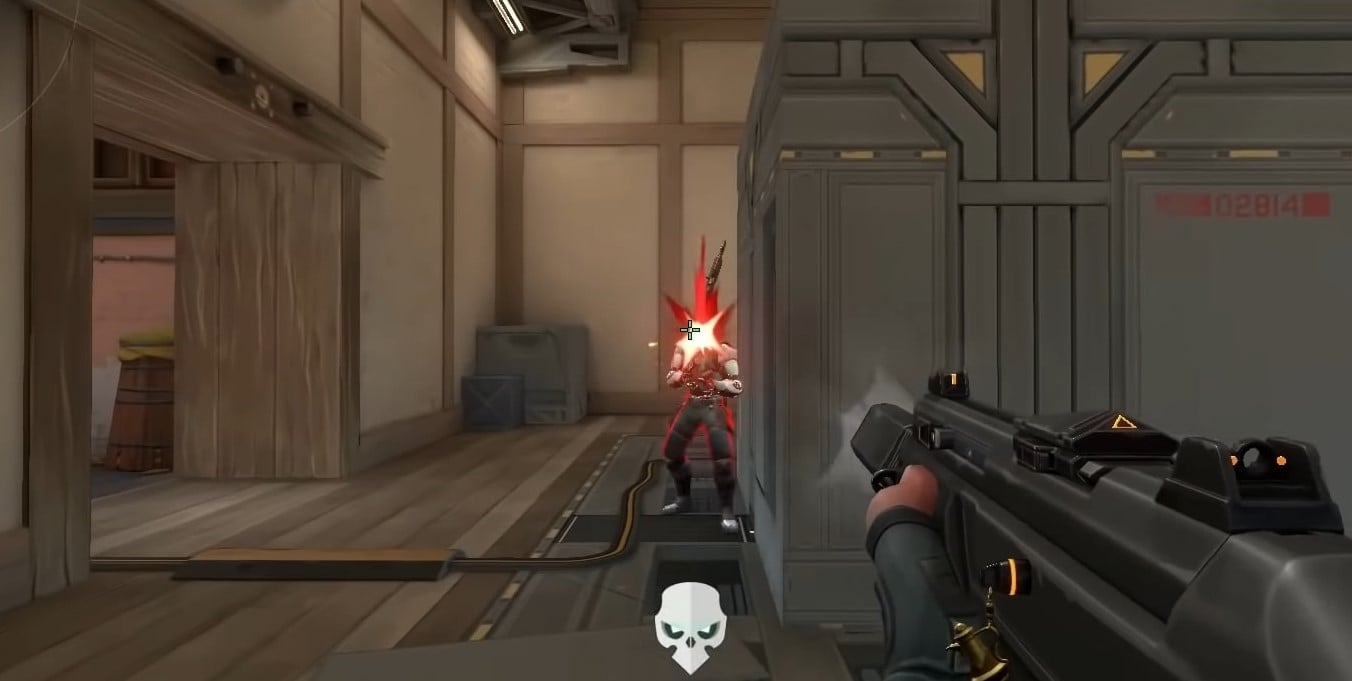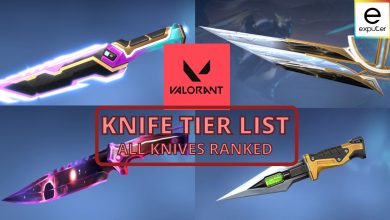Valorant features deep crosshair customization options, which essentially means unlimited crosshair configurations. Due to how heavily Valorant relies on your ability to put bullets on target, having the crosshair that suits your needs will let you get a leg-up in your engagements. With that, let’s dive into the best Valorant crosshair settings you can implement!
- Precise gunplay in Valorant requires optimal sensitivity, balancing stillness, and movement.
- Sensitivity depends on in-game mouse sensitivity and mouse DPI (Dots Per Inch).
- A high DPI (above 800) limits arm movement, favoring minimal wrist movement.
- Low DPI (below 800) requires more arm movement.
- In-game sensitivity varies based on preference, gameplay, chosen weapons, and agents.
- eDPI (effective Dots Per Inch) is calculated by multiplying in-game sensitivity by mouse DPI.
- Author’s Note: With over 5000+ hours in Valorant, I think I have plenty of knowledge when it comes to tweaking the Crosshair Settings.
The Best Valorant Crosshair Settings
So now you know what makes a good crosshair. Next, we will look at some of the best crosshair configuration settings in Valorant that find popularity with many Twitch streamers and eSports players across the world. So, if you want to give your Valorant game a boost, consider trying out these crosshair presets!

The Default Crosshair
This crosshair Setting for Valorant is highly simplistic, contains a minimum amount of distraction, and is among the best crosshair options for Valorant if you are starting out. It also finds plenty of use among professional players due to the high precision level.
However, it has the slight disadvantage of reduced visibility. Moreover, since this crosshair was designed to suit as many players as possible, it will not fit perfectly to a particular gameplay style.
| Color | White |
| Outlines | On |
| Center dot | Off |
| Inner lines | 0.8/6/2/3 |
| Outer lines | 0.35/2/2/10 |
| Fade crosshair / Firing error / Movement | On |
The Tight-sight Crosshair
The tight-sight crosshair in Valorant is ranked among the best ones you can use, mainly because of the accuracy it provides. This crosshair is a unique variant used mainly by professional players and high-ranking players.
It serves a tiny, non-intrusive crosshair that lets players concentrate on their aim by providing a tight line of sight that lets players focus on what they have within that crosshair. Experts who utilize a similar crosshair include T1’s Braxton Pierce.
| Color | Cyan (Player’s preference) |
| Outlines | Off |
| Center dot | Off |
| Inner lines | 1/6/2/3 |
| Outer lines | 0/0/0/0 |
| Fade crosshair / Firing error / Movement | On |
The Dot Crosshair
The dot crosshair setting is also among the more unique versions of Valorant’s crosshairs and is widely accepted as the best for precision and low clutter. With this crosshair, there’s a provision of a single cluster of pixels to hit the target. As such, you will identify the target with utmost clarity and minimal distractions. Additionally, there
The players can modify the opacity and thickness of both the outer and inner lines of the crosshair. However, in the case of a dot crosshair, the outlines remain very low.
| Color | Green (Player’s preference) |
| Outlines | On |
| Center dot | On |
| Inner lines | 0/0/0/0 |
| Outer lines | 0/0/0/0 |
| Fade crosshair / Firing error / Movement | On |
The Shroud Crosshair
If you have researched the best Valorant crosshair settings, you will have undoubtedly come across Shroud’s crosshair settings. As one of the most prominent and recognizable players in the FPS space, Shroud Valorant settings have been revered by many.
The center part of the crosshair should lie somewhat on the heads of the adversaries, providing you enough visibility during long-range shootouts. Moreover, the Shroud’s crosshair is mainly chosen to incorporate firing error into it, which can undoubtedly help you master the spray patterns of the various weapons in the game.
| Color | Cyan |
| Outlines | On |
| Center dot | Off |
| Inner lines | 1/10/4/6 |
| Outer lines | 0/0/0/0 |
| Fade crosshair / Firing error / Movement | Off |
Understanding Valorant’s Crosshair Settings
As previously mentioned, Valorant gives players an immense range of options to customize their crosshairs down to the finest of details. You can change settings such as colors, borders, thickness, and opacity. Therefore, before we show you some of the best crosshair settings, you can opt-in for Valorant.
As you set out in search for the crosshair settings that suit your Valorant game the best, you will be introduced to several options, and sliders found within the ‘Crosshair’ tab when you open up the menu by pressing the ESC key. Each of these affects the end crosshair you get in different ways.

When picking your crosshair, we recommend going into a Shooting Test range in Practice. Here, you can change your crosshair settings freely and see their effects on your game. Do keep in mind, though, that each crosshair will take some time to get adjusted to.
Here are some of the crosshair settings you can change in Valorant, along with the effect they will have:
- Color: Choose from eight colors to ensure your crosshair stands out against different backgrounds, aiding visibility during intense gameplay.
- Center Dot: Enable a tiny dot at the center of your crosshair to improve aim accuracy, especially useful for snipers.
- Outlines: Add a black border around your crosshair to enhance visibility, although it may introduce additional visual clutter.
- Fade with Firing and Movement: The top line of your crosshair fades when firing with a reflexive weapon, helping you maintain a clear view of your target and judge recoil compensation.
- Inner and Outer Lines: Customize the opacity, thickness, length, and offset distance of these lines from the center. They provide reference points for aiming and can be dynamic during movements or firing.
Conclusion
Undoubtedly, there are multiple crosshair styles available out there. A few of them suit every player, whether they are experts or amateurs, whereas others are more specialized and are better suited to specific gameplay styles.
This guide gave you a look at what to look for in a crosshair, how to change your crosshair settings, and a look at some of the best and most widely-used crosshairs available in Valorant. As stated, practice is key in finding the Valorant crosshair settings that fit your style best, but implementing these settings is a good start!
Let us know if you found the settings helpful and if they helped boost your Valorant game! And to make sure you always get the best FPS in Valorant, take a look at our Valorant Settings and Optimization Guide!
FAQs
Some factors you should keep in mind are precision, recoil control, static style, visibility, and appropriate size.
The game gives you deep crosshair customization options, including the ability to change the color, center dot, outlines, fade crossfire, and inner and outer lines.
Some great crosshair presets you should check out are the default crosshair, the tight-sight crosshair, the dot crosshair, and the shroud crosshair.
Let’s discuss Valorant’s circle crosshair setting next!
Thanks! Do share your feedback with us. ⚡
How can we make this post better? Your help would be appreciated. ✍
 Fact Checked By
Fact Checked By 


